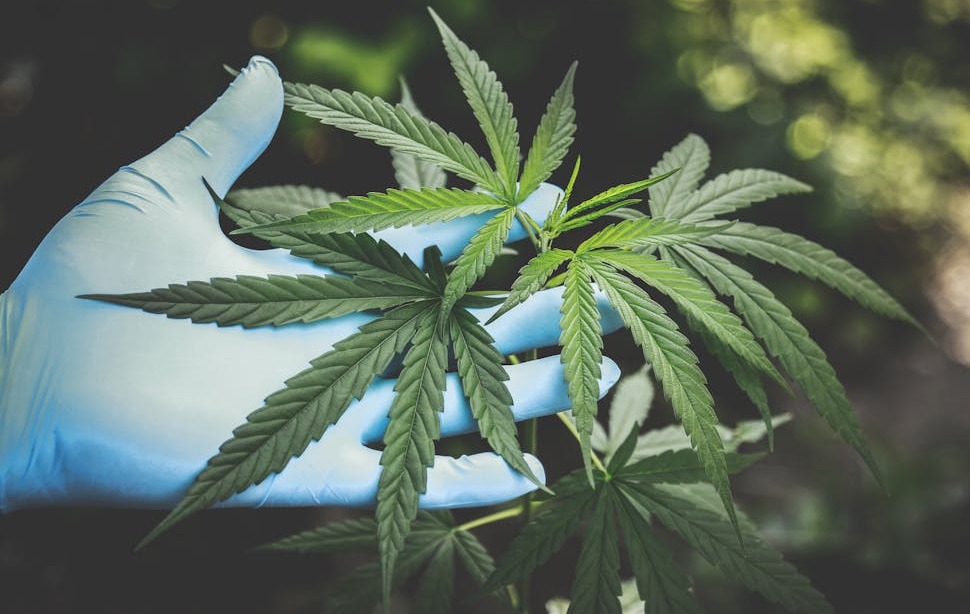Arrested or Charged with Possession of Marijuana (G.S. 90-95) in North Carolina?

A marijuana possession charge in North Carolina is never something you want to deal with, but if you’re facing one, it’s important to understand what comes next. Maybe it was a quick traffic stop, or maybe it was a misunderstanding. Either way, the stakes feel high—and for good reason.
At McMinn, Logan & Gray, we know this situation doesn’t define who you are. We’re here to help you navigate it with clarity, respect, and a legal strategy built to protect your future.
What Does North Carolina Law Say About Marijuana?
Let’s get one thing straight: While marijuana laws are evolving across the country, North Carolina hasn’t changed its stance yet. Under § 90-95 of the North Carolina Controlled Substances Act, marijuana possession remains illegal—no matter how small the amount.
Actual vs. Constructive Possession: What’s the Real Difference?
The law has two ways of defining possession:
- Actual possession: You had marijuana physically on you—in your bag, pocket, or car.
- Constructive possession: You didn’t have it on you, but it was in a space you could control. For example, marijuana found in your apartment could still count against you, even if it wasn’t on your person.
Prosecutors often use constructive possession to stretch charges further. That’s why having a skilled defense team matters.
How Are the Penalties?
Here’s a simple breakdown:
- Up to 0.5 ounces: A Class 3 misdemeanor—you could face a fine and maybe community service, but the charge will stick on your record.
- 0.5 to 1.5 ounces: This is considered a Class 1 misdemeanor and could mean up to 120 days in jail.
- More than 1.5 ounces: A Class I felony, which comes with significant prison time and long-term consequences.
Carrying over 10 pounds? That’s when things escalate to trafficking charges—an entirely different legal battle with serious consequences.
When It Becomes More Than Possession: Intent to Sell or Deliver
Here’s where things can get unfairly complicated. Even if you had no intention of selling, having items like scales, baggies, or large amounts of cash nearby could lead to a charge of possession with intent to manufacture, sell, or deliver.
The Penalties Get Real Fast
- Class H felony punishable by up to 25 months in prison.
- Class G felony for larger quantities or if the prosecution argues distribution more convincingly.
This isn’t just about what you were doing—it’s about what it looks like you were doing. And that’s where we come in.
How a Strong Defense Can Make the Difference
A marijuana possession charge doesn’t have to define your future. A solid defense strategy can challenge weak evidence, procedural mistakes, and unfounded assumptions. Here are key areas a strong legal defense will examine:
- Illegal Search and Seizure – Did law enforcement have a legal reason to search your property, vehicle, or person? If not, evidence may be inadmissible.
- Actual vs. Constructive Possession – Can prosecutors prove you had knowledge and control of the marijuana, or are they making assumptions based on proximity?
- Intent to Sell – Are charges based on actual evidence, or are they exaggerated due to the amount found or other circumstantial factors?
Every case is different, but an experienced attorney will look at every angle to build the strongest possible defense and protect your rights.
Real Cases That Show the Stakes
State v. Dobson (2024): A Routine Stop Gone Wrong
What started as a simple traffic stop escalated when officers claimed they smelled marijuana. That alone was used to justify a search, leading to charges of possession with intent to sell under section 90-95.
The case highlights how subjective claims—like an officer’s assertion of detecting an odor—can be used to build a much larger case against a defendant, even without concrete proof.
State v. King (2024): When One Charge Becomes Many
A minor marijuana possession charge snowballed into possession of drug paraphernalia and driving while impaired—a reminder of how quickly a simple mistake can spiral under North Carolina criminal law.
What could have been a minor citation turned into multiple criminal charges, showing how law enforcement often adds additional offenses to strengthen their case and increase potential penalties.
It’s Not Just About Jail Time: The Long-Term Fallout
Even if you dodge jail, the consequences of a conviction linger:
- Job opportunities: A felony offense could severely limit your career options.
- Education: Scholarships and financial aid could be off the table.
- Housing: A criminal record could affect your ability to rent.
- Gun rights: A felony conviction strips you of your right to own a firearm.
Why McMinn, Logan & Gray Should Be Your First Call
We’re not just another North Carolina law firm—we’re the defense team that knows how to fight back. Our board-certified criminal law specialists understand the system, and more importantly, we know how to challenge it in the courtroom.
We offer:
- A personalized defense strategy tailored to your case.
- Expertise rooted in the North Carolina Controlled Substances Act.
- Negotiations aimed at reducing or even dismissing your charges altogether.
FAQs: Your Questions, Answered
Is marijuana legal in North Carolina?
Nope—North Carolina still enforces strict marijuana laws under the Controlled Substances Act.
Can I get my record cleared?
Some drug possession charges may qualify for expungement, depending on your history and circumstances.
What happens if I already have a prior conviction?
Previous convictions can increase penalties—but that doesn’t mean all hope is lost. A strong legal defense can still make a big difference.
One Mistake Shouldn’t Define Your Life
Facing charges under G.S. 90-95? You’re not alone. The right defense can mean the difference between a conviction that impacts your future and a resolution that allows you to move on.
Contact McMinn, Logan & Gray today for a confidential consultation. We’re ready to help you fight for your future, defend your rights, and move forward with confidence.



